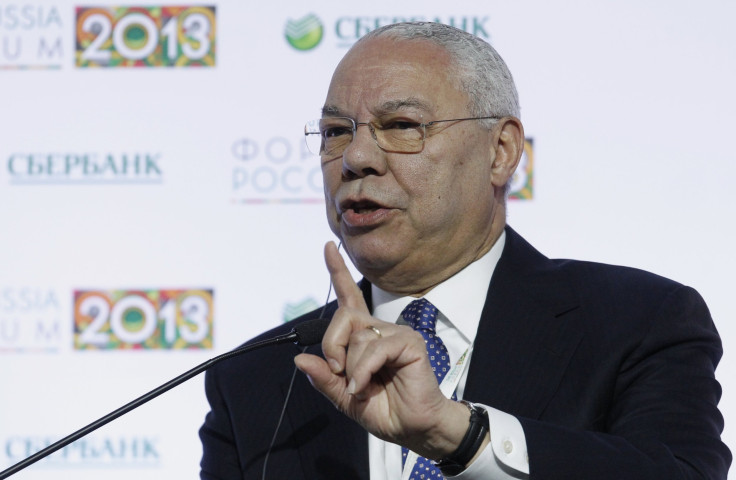Colin Powell Says He Supports Iran Nuclear Agreement, Calls It 'A Pretty Good Deal': Report

This story has been updated.
Update: President Barack Obama thanked Colin Powell for his support of the Iran deal on Twitter Sunday, saying the former secretary of state had put his "experience and expertise behind this important initiative."
Thank you, Colin, for putting your experience and expertise behind this important initiative for our country. https://t.co/bSnaLMs8CU
— President Obama (@POTUS) September 6, 2015Original story below.
Former U.S. Secretary of State Colin Powell, who served under President George W. Bush, Sunday told NBC's "Meet the Press" the Iran nuclear agreement struck between the country and six world powers led by the United States is "a pretty good deal." Powell added the accord would reduce the threat of Iran developing a nuclear weapon, arguing critics of the deal who insist it will do the opposite, are "forgetting the reality that [Iranian leaders] have been on a superhighway, for the last 10 years, to create a nuclear weapon or a nuclear weapons program, with no speed limit."
During his appearance on the program, Powell also pushed back on skeptics who have questioned the ability of independent inspectors to verify Iran is holding up its end of the deal. "With respect to the Iranians," Powell said, "don't trust, never trust, and always verify.
"And I think a very vigorous verification regime has been put into place," he added.
The deal affords the United Nations the ability to inspect Iran's nuclear facilities in exchange for relaxed sanctions on the country, which has struggled for years under the weight of the economic restrictions. A number of former inspectors have raised questions about the ability of the inspectors who would be responsible for monitoring Iran's nuclear capabilities, saying they do not have the necessary expertise to point out machines or processes that could or would indicate Iran is militarizing its nuclear material. That point has been siezed by opponents of the deal who argue that the accord would do nothing but put Tehran on the fast track to developing a nuclear weapon.
The deal has been strongly opposed by Israeli Prime Minister Benjamin Netanyahu and other leaders in the Middle East. The Republican-led U.S. Congress also appears largely opposed to the agreement, though President Barack Obama has secured the support of enough U.S. senators to ensure a veto of any resolutions to block the deal.
Powell, a retired four-star general who also served as national security adviser and chairman of the Joint Chiefs of Staff under President George H.W. Bush, once again put himself at odds with the Republican Party. Declaring himself a Republican in 1995 and campaigning heavily for the party in subsequent years, the retired general has been on the outs with the GOP since his decision to support Obama's campaign for the presidency in 2008.
© Copyright IBTimes 2025. All rights reserved.






















